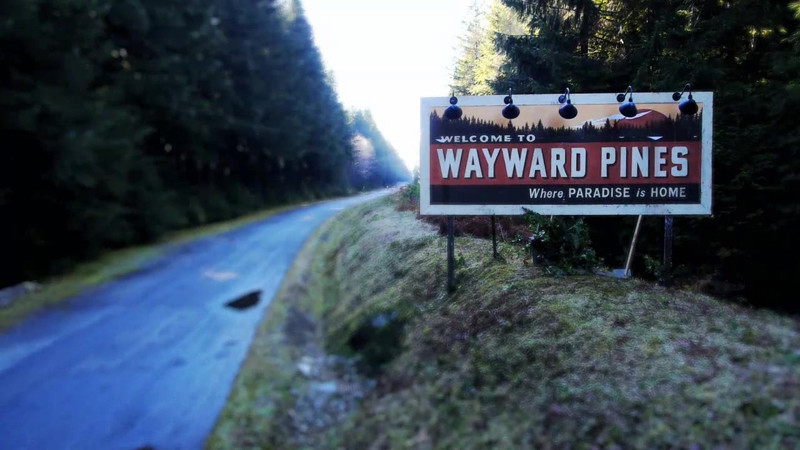Rilke says, "Be patient toward all that is unsolved in your own heart, and try to love the questions themselves." Questions can frustrate, but their very existence offers a type of promise. The questions are almost always more satisfying, more intriguing, more true than the answers. Attempts at answering are the reason for every groan-worthy twist ending and every disappointment when a promising, complex set-up devolves into a simplistic conclusion. It's easy to ask the provocative questions, but harder to find deserving answers.
When I began watching Wayward Pines, I purposefully didn't read any reviews, not so much because I wanted to avoid spoilers, but because I wanted to have my own experience of it. And so I have. The 10 episode series, currently midway through its run, focuses on the sinister and idyllic town of Wayward Pines, a place where people wake up after car crashes and other accidents, only to find it's a bit harder to get out than it was to get in.
There is a sheer pleasure to the mysteries of Wayward Pines, played out overtly and for full dramatic effect. The mystery is really the only thing about this show, as episode after episode revels in the dreamy, illogical and inexplicable. I have a bad feeling the conclusion of the series is going to disappoint, but I don't care—in a good way. I'm loving the questions because they're truly enough.
Is it the future, the past, some kind of vortex, a dying dream? I don't care! I just like this creepy town, the fog, the rain, the serendipity, the love triangles, the overt danger in every frame, the watchful surveillance. I like Matt Dillon running around in the woods with a map and Juliette Lewis tending bar. I like how everyone whispers the truth just outside the camera's range.
What does it mean to be stuck somewhere? Why do we let it happen? Are we ever really that isolated and helpless? Are some things for our own good? Must we give up certain freedoms in order to be safe? Do we really want what we claim to long for most? Questions, questions, questions.


